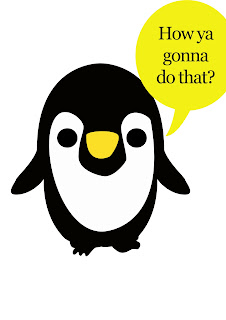In example – Here is a good WHAT statement – The museum will build a new exhibit about penguins. If I move on from here without describing how, or if I don’t describe it later – somewhere – in the proposal, the readers are left to wonder, “So you’re building a penguin exhibit and your Museum is in Phoenix, Arizona. So how are you going to get penguins to Phoenix, keep them cold, get fish to feed them, keep their little dancing feet happy?” If you haven’t answered any of those questions describing how these things will get done then your readers are left questioning whether or not you can accomplish what you said you would do. They should question it too!
So now facing a weekend ahead, and almost the last weekend before the grant is due, there is no time to waste because the narrative must be perfectly descriptive of how, and why, the project I am proposing is sound, well-thought-out, well-planned, supported by research, based on multiple sources of input, aligned with the funders priorities, targeting an appropriate audience, etc. etc. etc.
Grant writers often face the task of describing how these projects will be implemented with limited input from clients. This makes the task of grant writing challenging but also makes it an interesting intellectual exercise. How the project should be implemented for any individual client depends on many factors and those can be elicited through conversations and discussions with the client. How the project should be implemented based on best practices and sound research is something that can be determined through online research, discussion with experts, reading articles, blogs, and informative websites.
Anyone who has conducted any level of research online or otherwise can attest to the time-intensive nature of the task. It isn’t always easy to find the right resources and it takes time to read them, digest the information, and translate it all into a grant narrative. So getting to the how the project implementation and design can take a lot longer than someone outside the grant writing field might understand.
Well it’s getting late for a Friday, so I will close this post and leave the rest of the research and writing for tomorrow.






